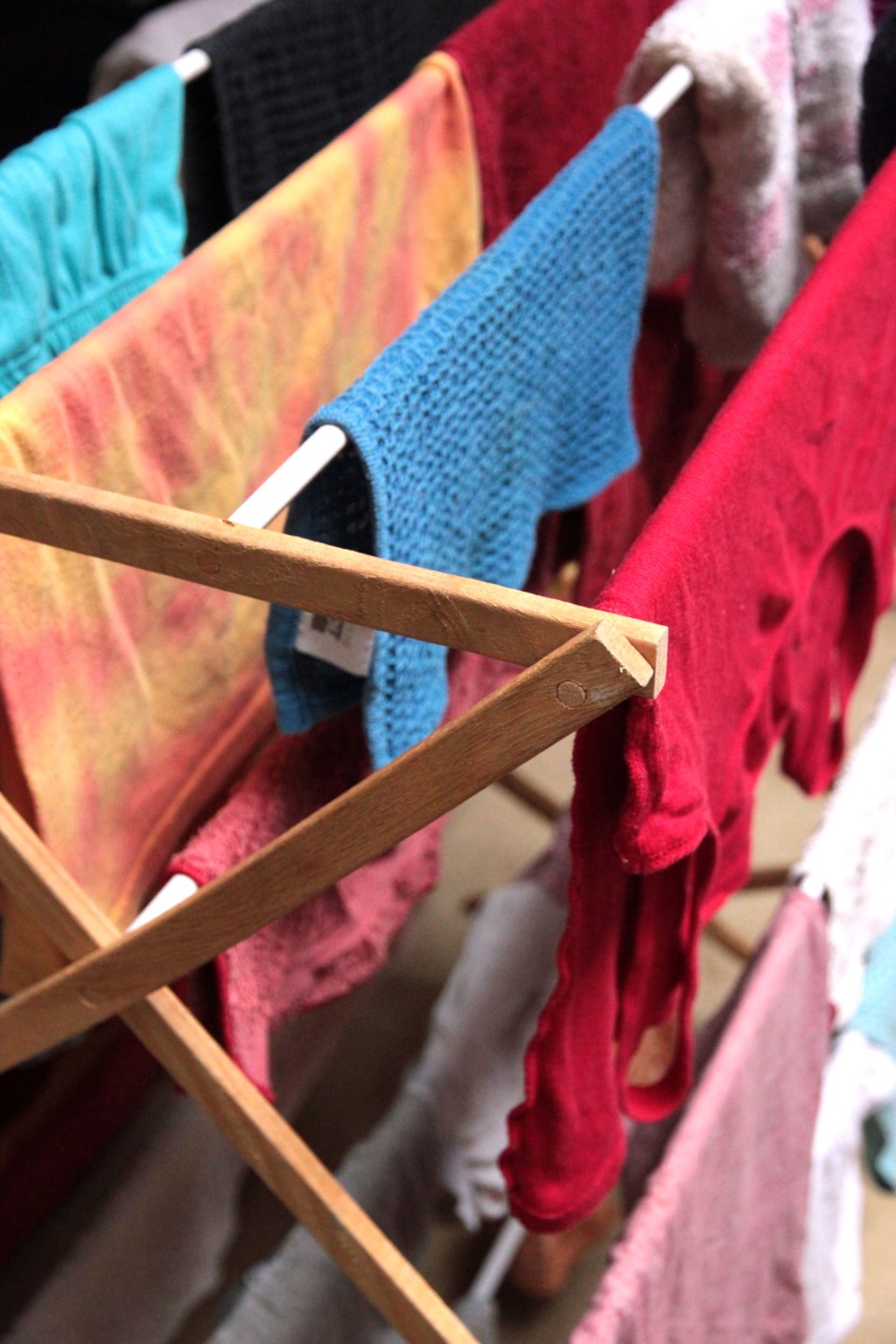Last year our beloved cat took exception to the pelting rain and peed on our down quilt. It was the first time I regretted having sold our dryer. My mother pleaded with me to come stick the washed and heavy quilt in her dryer, but pride made my voice refuse. After two years without using a dryer, I wasn't about to cave in and admit defeat. I hung the quilt on the rod in the living room, raised it with the pulley-system, and lit the wood stove. I shook the quilt every evening, and at the end of four days our quilt was not only dry, but fluffier than it had been these past few years.
This first morning of autumn is windy – there is an intermittent gentle rainfall, but because of the wind it's still worth hanging this load of laundry outside rather than in the house. It will dry faster and keep the house from becoming humid. I might have to hang it on the indoor rods tonight, to finish the drying. This kind of thought occupies my mind often, since we gave up our dryer.
I wanted to cut our energy bill, and figured the dryer was not only the biggest energy-hog in the house but also the least necessary. So I just stopped using it. At first I thought we were being extreme, and many friends and family were certainly shocked when we sold the dryer. But then I began to discover other people who had lived inconspicuously without dryers all my life, and never made a big deal about it... because it's really not a big deal. It takes a little extra time, but the benefits are far greater than I had imagined.
Just the smelling of my laundry has put me in touch with the world around me in a way that I haven't always been. I have to be aware of more subtle weather changes than I did before, and I have developed a feel for the humidity level in the house. Some days laundry will dry in two hours; sometimes it takes two days. I am glad for this awareness. It brings a necessary mindfulness not only to my experience of the world but also to how I organize my days.
And yes, sometimes it feels like a sacrifice. You know that feeling of a soft, fluffy, dryer-warmed towel? My husband used to pre-warm the towels for the children before they came out of their baths. He bundled them up in his arms and carried around our cuddly lumps of sweetness. We don't have that anymore (we also don't have babies anymore). The pile of our towels is not nearly as soft. O.K. fine. It's hard. And in freezing weather the towels are more like cardboard. But with a good shake they soften up, and they smell like the January sea breeze – as in, that salty, invigorating breeze off the Salish Sea – not the chemically-created SeaBreeze with the little TM after it. They remind us that we live on an island.
Living on an island can facilitate a smooth slide into a colossal carbon footprint. We are a family who drives an outdated gas-guzzling vehicle and is supported by a part-time commuting breadwinner. Our carbon footprint is not remediated much by our dryer abandonment, no matter how good our clothing smells. There's a lot further we need to go. We're looking into solar heat-pump technology, a better pantry and an evaporative fridge. Our children are choosing more activities that they can cycle to, and we're trying, in general, to live with less.
I am not going to solve climate change just by ditching my dryer or making my kids ride to their activities. But in making these relatively small changes I am becoming more aware of my interdependence with my ecosystem. I am more grateful every day for the human/ecological community that supports me. I hope that, in living with gratitude and awareness, we will find it increasingly easy to live within our means. It's autumn, now. I love that when I reach for a slightly-stiff towel and brusquely scrub myself dry I smell the autumn leaves.



